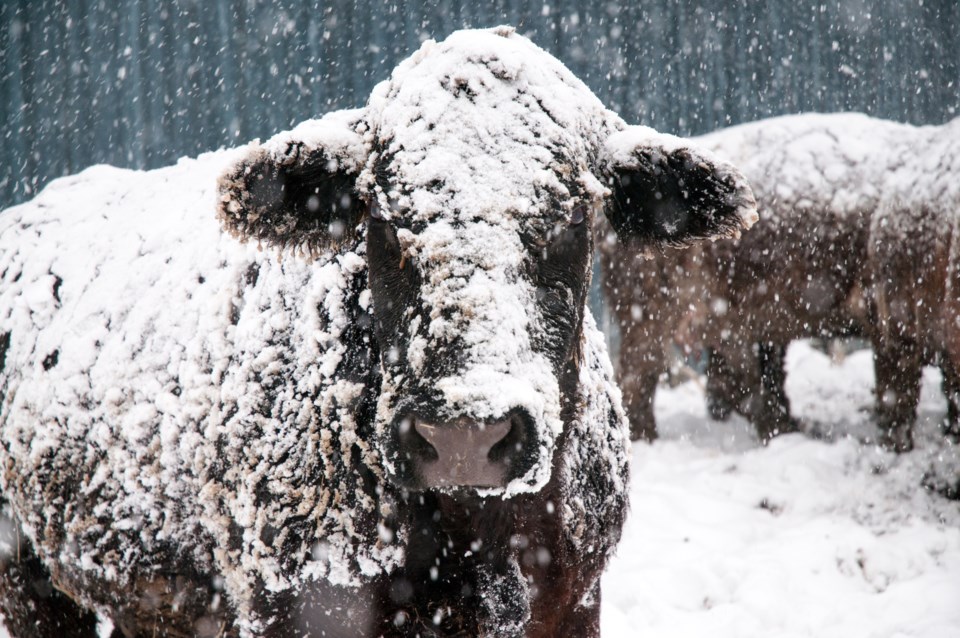PRINCE ALBERT— The Saskatchewan Association of Rural Municipalities (SARM), along with member RMs, said in a press release Thursday that they are concerned for the future of livestock producers operating in the province due to veterinarian shortages, low profitability, support on premiums and year-over-year drought.
“Cattle producers have been struggling with feed concerns due to ongoing drought and it has taken its toll on the profitability of producers,” SARM president Ray Orb said in the press release. “Alongside the feed concern, young ranchers are struggling to get into the industry, or find sustainability with fluctuating prices and little to no risk management support.”
Saskatchewan ranchers are heading into one of the most important seasons, calving, and are concerned about the shortage of rural veterinarians. Livestock producers need the support of nearby veterinarians for the health and safety of their herds and the longevity of their stock.
“Can we put incentives in place to attract veterinarians to consider opening clinics in our rural communities? Let's start offering opportunities for youth entering the field to open clinics in our province,” Orb said. “The lack of veterinarians is a chronic concern for producers who are being left to travel great distances to find animal aid, or enduring additional costs for mobile vet appointments. We just don’t have enough services for our livestock industry.”
The Saskatchewan Cattlemen’s Association (SCA) also has concerns about the lack of veterinarians, among other issues. SCA board chair Keith Day said they plan to work with SARM to make sure those issues are addressed.
“The agriculture sector is fundamental to the growth of Saskatchewan’s economy, and the livestock sector needs to be recognized for the outsized role it plays in protecting our environment while providing quality protein for a world facing a food crisis,” Day said.
Jeffrey Yorga, 1st Vice President Saskatchewan Stock Growers Association (SSGA) said the last five years of droughts exposed some cracks in the business of cattle. He said the lack of business risk management tools, lack of pricing transparency, and the rapid exit of aging producers has threatened the existence of Saskatchewan’s beef industry.
“Economics has sped the decline in cattle numbers,” Yorga said. “As well, the relative economic success in other sectors has turned the land from grass to annual crops, ensuring that the cows won't return.
“While all indications point to better days ahead for producers who remain, the SSGA welcomes all industry partners to continue to work together to fix the problems that got us here so that when these situations arise the industry is more resilient and able to operate on the same footing as other commodity producers,” he added.
SARM, SCA, and SSGA are invested in finding solutions and immediate support for the ranchers that make up a large portion of rural Saskatchewan. They said they want to see producers grow and succeed and to do this need support with better risk management programs, more rural vet clinics, irrigation, and consideration for a joint effort from our provincial and federal governments in cost-sharing premiums.
SARM, SCA, and SSGA continue to call for action in support of cattle producers and push for discussions with our provincial government, delegates, and producers at the upcoming SARM convention on March 14 to 16in Saskatoon.




